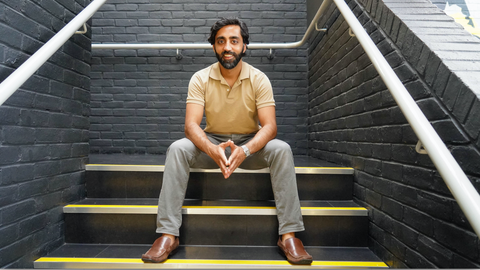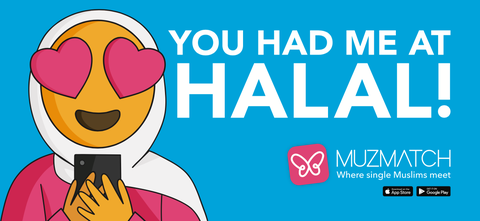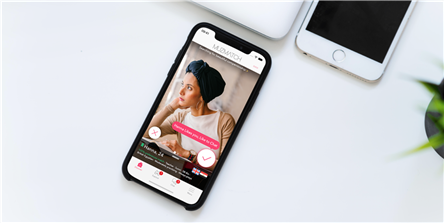After hearing countless friends complain about being unable to find a spouse, Shahzad Younas wondered, “If I’m a Muslim guy, how can I actually meet a girl?” Quickly, he realized options were limited. “It’ll be through work, or a friend of the family, then what else? Muslims don’t really have a bar or club culture.”
Younas sought to change that. In 2013, he decided to leave his senior position at Morgan Stanley to make an app. In his bedroom, he developed Muzmatch, an app for Muslims to meet other single Muslims.

Muzmatch
“Muslims don’t date. We marry,” Younas said to Men’s Health over a video call. In fact, “dating,” he explained, is a polarizing word. “Within the Muslim space, the term dating can be problematic because to some, it’s not centered enough around the end goal of marriage.”
That’s why he had to walk a fine line when developing the app, which now has hundreds of thousands of daily users across the globe.
Many of the more popular dating apps, such as Tinder and Grindr, have a strong reputation for being “hookup apps.” While dating and eventually marriage is indeed possible, Younas noted that meet-ups from these apps tend to be casual at best. Of course, all Muslims aren’t opposed to hooking up or dating casually, but that wasn’t who Younas sought to target. He wanted to cater to Muslims that are looking to quickly tie the knot.
At the same time, “We don’t want [Muzmatch] to be too serious that it scares off young Muslims. What we’re trying to do is make the whole process of finding someone who’s thinking about marriage something that’s positive and not scary,” Younas explained.

Muzmatch
Still, the CEO recognizes that Muslims are an extremely diverse community, and not everyone is looking for the same thing in a partner, which is why he asks users how religious they are. Younas recognizes that what’s considered “very religious” to one person isn’t the same for another user, which is why he asks an additional 22 religious and personality questions such as, “How often do you pray?” “Do you drink?” and “Do you only eat Halal?” (permissible food prescribed by Muslim law).
There’s even the option to have a chaperone present while using the app. When someone chooses to add a chaperone, they can choose a parent, friend, or whomever to have access to their conversations. The other user is notified that there’s a chaperone overseeing messages.
“The heart of it is to ensure good behavior,” Younas said, “If you want to speak more religiously, there is an Islamic principle that if a guy and a girl are talking, there should be a third party present.”
You have to hand it to him: Younas creatively utilized technology to keep in line with Muslim customs. Nevertheless, Muzmatch users are still often embarrassed to admit that they use the app. There are roughly 100 users who leave the app each day, for the reason that they found someone on it whom they plan to marry. (When users deactivate their profile, they’re prompted with the a question asking why they’re leaving the app.) “We know we have so many success stories, and they often ask, ‘Can you keep it private? I don’t want people to know we met online.’”
But Younas is beginning to see an evolution in thinking, even within the five years since the app launched. He noted that more and more users feel comfortable openly saying they met through the app.
“It’s really just a matter of time until folks feel more comfortable [saying they met on Muzmatch],” he said. “I think the Muslim community is often twenty-five years behind mainstream when it comes to this stuff.”
So what’s next for Muzmatch, whose users are predominantly in the United States, Canada, UK, and other Western nations? Expanding to Muslim-majority countries. The app just secured $7 million Series A investment led by two US investors: Luxor Capital, a multi-billion dollar US hedge fund, and Y Combinator, the Silicon Valley-based accelerator who have backed the likes of Airbnb, Dropbox, Stripe and Reddit.
With that money, they plan to heavily advertise in Muslim-majority countries in Northern Africa, Central Asia, and the Middle East. “You’ll be amazed. Even though you’re in a country with a hundred million Muslims, people still find it very hard to find a partner because you’re juggling religion, culture, your parents, and all that.”
At the end of the day, Younas’ main mission is to increase the number of ways Muslims can meet. “And we already are. We’ve had users meet and marry in some of the most remote places you could imagine. We’ve even had people reach out to us, saying, ‘If it wasn’t your app, I would have never been able to talk to the person I now call my wife.’”
Source: Read Full Article
